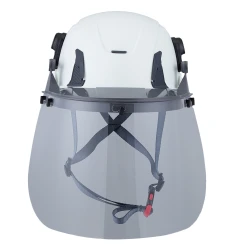The Importance of Lightweight Outdoor Gear
2024-08-24
When it comes to outdoor adventures, the weight of your gear can have a significant impact on your experience. Whether you’re backpacking through the mountains or embarking on a day hike, carrying lighter gear can make your journey more comfortable and enjoyable. Here’s why lightweight outdoor gear is important and how to choose the best options.
1. Improved Mobility and Comfort
One of the primary benefits of lightweight outdoor gear is improved mobility. Carrying less weight allows you to move more freely and comfortably, reducing the strain on your body. This is especially important on long hikes or multi-day treks where fatigue can set in quickly.
Backpacks: Choosing a lightweight backpack with a well-designed suspension system can help distribute the load more evenly, reducing the strain on your shoulders and back.
Sleeping Gear: Lightweight sleeping bags and pads reduce the bulk in your pack, making it easier to carry other essentials.
2. Energy Efficiency
Lighter gear means you’ll expend less energy carrying it, which can be crucial when you’re covering long distances. This energy savings allows you to hike longer, climb higher, and explore further without tiring as quickly.
Footwear: Lightweight hiking shoes or trail runners can reduce fatigue by making each step easier, especially over long distances.
Tents and Shelters: Opt for lightweight tents or tarps that provide the protection you need without the extra pounds. This can make a big difference when you’re setting up camp after a long day on the trail.
3. Increased Safety
In some situations, carrying lighter gear can increase your safety. With less weight to carry, you can move faster in case of emergencies or bad weather, allowing you to reach shelter or safety more quickly.
Emergency Gear: Lightweight emergency kits, including a small first aid kit and compact survival gear, ensure you’re prepared without adding significant weight to your pack.
Clothing: Lightweight, quick-drying clothing can help you stay comfortable in changing weather conditions without weighing you down.
4. Easier Packing and Organization
Lightweight gear is often more compact, making it easier to pack and organize your equipment. This can lead to a more balanced load and easier access to your gear when you need it.
Cookware: Compact, lightweight cookware is easier to pack and takes up less space in your backpack, leaving more room for other essentials.
Water Storage: Collapsible water bottles or hydration bladders save space and weight, making them ideal for backpacking.
5. How to Choose Lightweight Gear
When selecting lightweight outdoor gear, it’s important to balance weight with functionality. Here are some tips to help you choose the best lightweight gear:
Prioritize Essentials: Focus on reducing the weight of your most essential items first, such as your backpack, shelter, and sleeping system.
Research Materials: Look for gear made from lightweight yet durable materials, such as titanium cookware or ultralight nylon tents.
Test Before You Buy: Whenever possible, test gear in-store or read reviews to ensure it meets your needs without sacrificing durability or comfort.
6. The Trade-Offs
While lightweight gear has many advantages, it’s important to be aware of potential trade-offs. Some ultralight gear may sacrifice durability or comfort to save weight, so consider your specific needs and the conditions you’ll be facing before making a decision.
Durability: Lightweight gear may not be as durable as heavier options, so consider the conditions of your adventure and whether you need more robust equipment.
Comfort: Some ultralight items, such as sleeping pads or backpacks, may offer less padding or support, so be sure to choose gear that provides adequate comfort for your needs.
In summary, lightweight outdoor gear offers numerous benefits, from improved mobility and energy efficiency to increased safety and easier packing. By carefully selecting your gear and balancing weight with functionality, you can enhance your outdoor adventures and enjoy the great outdoors with greater comfort and confidence.



